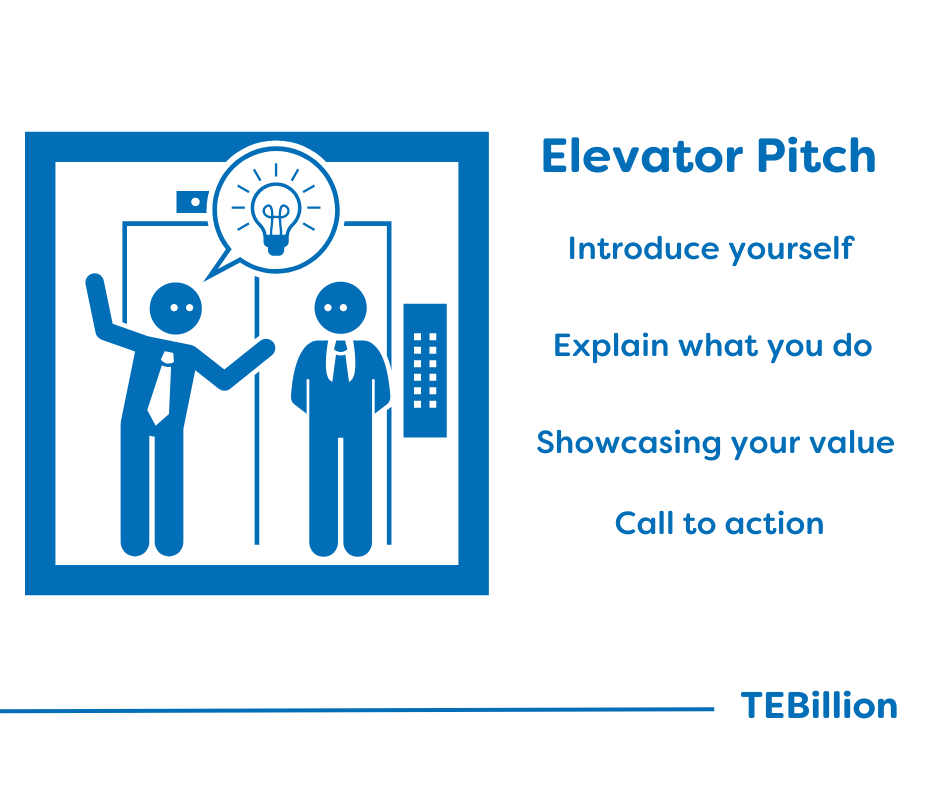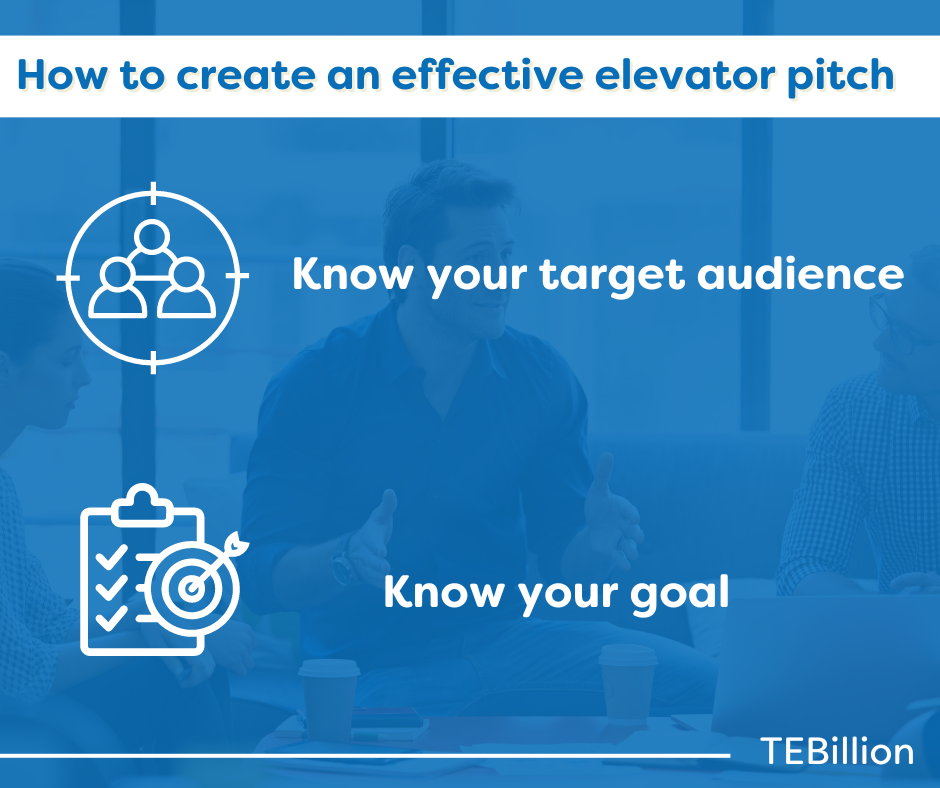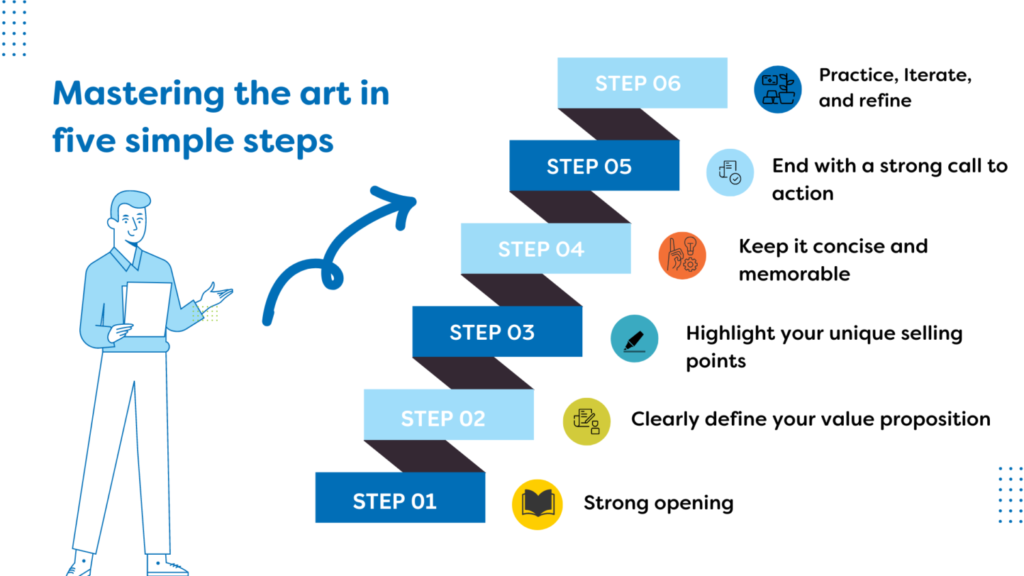In today's fast-paced world, capturing someone's attention and making a memorable impression has become more challenging than ever. This is where the elevator pitch shines, a compelling introduction that can be delivered in the time it takes to ride an elevator.
Mastering the art of crafting and executing a perfect elevator pitch is a game changer, whether you’re a sales professional or an entrepreneur looking to network. Having a concise and compelling elevator pitch with a spark of confidence will open doors to new opportunities and potential clients. In this article, you will discover the key elements of crafting a professional elevator pitch that can be used by sales representatives to leave a lasting impression.
An elevator pitch is a persuasive speech that outlines who you are, what you do, and highlights you are valuable, finishing with a call to action in a brief period. It is called an elevator pitch because it's designed to be delivered quickly and effectively ( “the time it takes to ride an elevator”) while still capturing the attention of the audience and making a valuable impression.

An elevator pitch can be used by individuals within different industries and in a wide range of situations, such as :
Whether you are networking at an event or introducing yourself to a potential client, mastering the art of the elevator pitch can be the difference between making a meaningful connection with a prospect, or being quickly forgotten. According to research by Harvard Business Review, professionals who can articulate their value proposition succinctly are perceived as more competent and are more likely to be remembered.

The advantage of a sales representative having an established elevator pitch essentially lays the foundation to get people interested in your idea, product, or service. A practiced elevator pitch also builds your confidence while reducing your nerves, as you do not have to figure out how to introduce yourself on the spot. This will allow you to sound professional and create a good first impression.
In a world where opportunities can arise unexpectedly and attention spans are fleeting, mastering this essential skill is paramount for sales representatives looking to win more sales and boost their conversion rates.
Crafting the perfect elevator pitch can be achieved by sticking to the key fundamentals when creating your personalized pitch, as this will ensure a pitch with a balance of clarity, and persuasion designed to capture attention and leave a lasting impression in a matter of seconds. Here are some key aspects to consider before creating your elevator pitch :

Know your target Audience
Before creating your elevator pitch, it is crucial to understand who your target audience is, and what are their needs, interests, and priorities. By Researching your target audience beforehand to gather insights you can tailor your pitch to correlate with them, allowing your introduction to come across as more relevant and compelling. You must also know your business, what product or service you sell, or what you plan to offer and how it correlates with your target audience.
Know your goal
What are your goals for your elevator pitch? Are you aiming to attract a new client, or pitch and sell your service to a major corporation? The potential objectives may be diverse, so individuals must tailor their elevator pitches based on their specific aims and intentions.
STEP 1: Strong Opening
By starting your elevator pitch with a strong opening such as using a bold statement, thought-provoking question, or interesting statistic your pitch will grab a listener’s attention right from the very beginning. The goal of step 1 is to create a strong pitch opener that sparks curiosity and engages your listener, setting the stage for the rest of your pitch.
STEP 2: Clearly Define Your Value Proposition
It is crucial to communicate clearly and concisely details such as who you are, what you do, and why you are valuable, early on within your pitch. This allows your listeners to understand on a surface level who they are talking to and how a connection with you may benefit them. Throughout this stage, it is important to use simple and easy-to-understand language, avoiding industry-specific or technical terms that may confuse your audience.
STEP 3: Highlight Your Unique Selling Points
At this stage of your elevator pitch, to draw your audience in you should start to state professionally what sets you apart from others in your field. For example, this could be years of experience, expertise or results, and achievements. The goal of this stage is to highlight your unique selling points, which will emphasize what makes you different and why you are the best choice for solving your listener's problems or meeting their needs.

STEP 4: Keep It Concise and Memorable
A key tip at this stage of creating your pitch is to remember, that an elevator pitch is meant to be brief but sharp, memorable, and to the point. Aim for a pitch that lasts no longer than 60-90 seconds as this is long enough to convey your message effectively and short enough to maintain your listener's attention throughout.
STEP 5: End with a Strong Call to Action
Conclude your elevator pitch with a clear and compelling call to action. Whether it's scheduling a follow-up meeting, exchanging contact information, or inviting them for a further detailed discussion. By concluding with a strong call to action it makes it easier for your listener to identify and choose to take the next step. If your listener does not take action straight away, concluding your pitch with a strong takeaway or closing statement will reinforce your elevator pitch message and leave a memorable lasting impression.
STEP 6: Practice, Iterate, and Refine
Lastly like mastering any skill, crafting, and executing the perfect elevator pitch takes practice, it is crucial to rehearse your pitch until it flows naturally and effortlessly. It is also important to iterate and refine your pitch over time based on feedback and experiences that have allowed you to gain further insights and learn what resonates well with your audience.
Mastering the art of the elevator pitch is a valuable skill that can open doors, and create opportunities for individuals across several different professions. However, following the tips and strategies provided throughout the article. Sales representatives can craft and equip themselves with a perfect elevator pitch that captivates leads or prospects, communicates their value effectively, and leaves a lasting impression that is more likely to cause them to take action.
Now that you have begun the journey to craft and master your elevator pitch, a great suggestion would be to dive deeper into the art of effective communication by exploring our comprehensive guide on creating compelling follow-up emails.
Click here to read our, Follow-up Email Article With Free Downloadable Templates ! To gain valuable insights of how to reel in your new leads, maintain engagement, and drive conversions with precision and finesse.